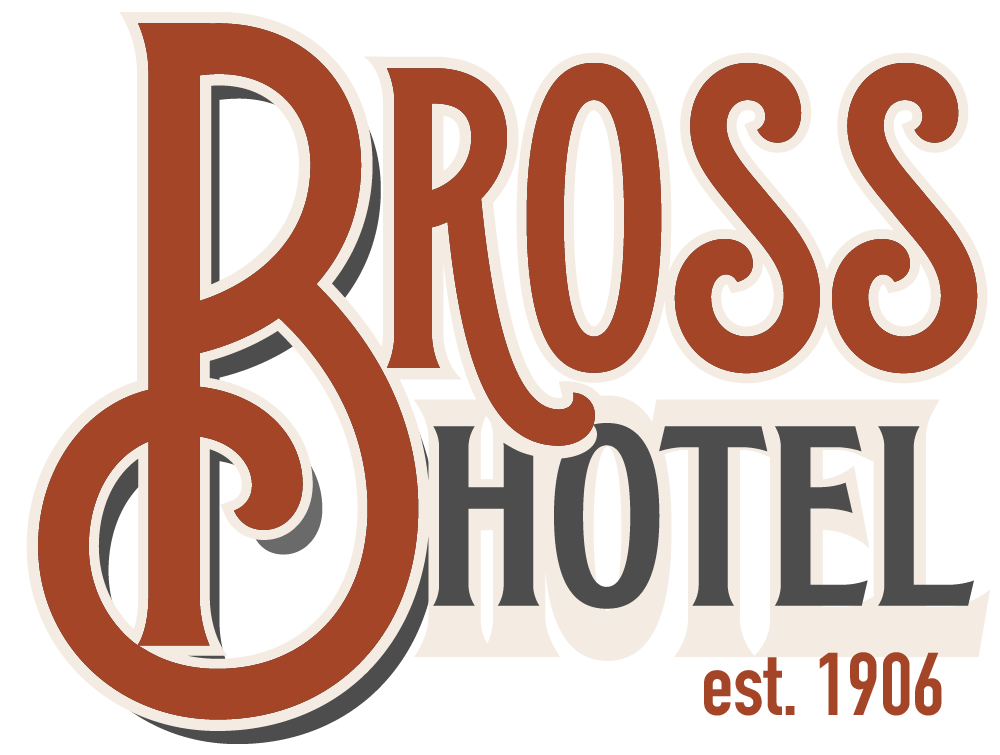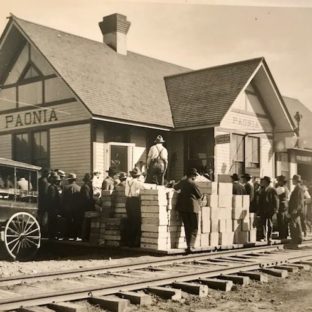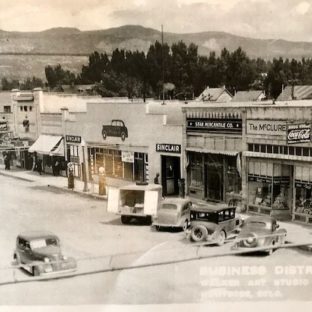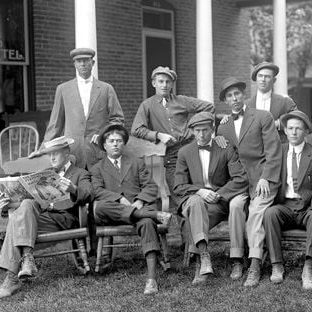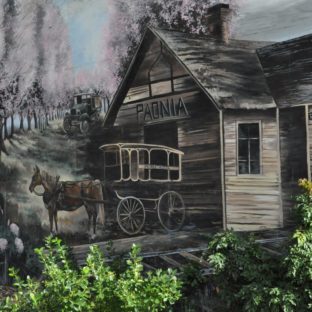1900
The Bross family moved to Paonia. Mrs. Laura Bross purchased the house next to the hotel and opened a boarding house.
1903
William Taylor Bross, the husband, bought the two vacant lots next-door and built the hotel.
1906
The Bross Hotel Bed & Breakfast opened for business.
1906 – 1921
The hotel was a successful business in the community. W.T. Bross was active in the community; he served a term on the town council, but is best remembered as having been the deputy sheriff for this part of the county. He met the train each afternoon and brought guests to the hotel in his wagon while Mrs. Bross served as hostess and manager. The hotel flourished during W.T. and Laura Bross’s ownership, serving as both a lodging place and the finest restaurant in town.
1921
When Mr. Bross passed away in 1921, his youngest son, Otto, became the new hotel owner. Otto was a “mover and shaker” who kept his finger on the pulse of the community. He finished the basement of the hotel to make a meeting room for the Rotary Club. Otto was a charter member of the Lion’s Club, and he hosted the initial meeting of merchants that became the Chamber of Commerce. Due to the significant commercial and social roles played by the hotel under the Bross family, it was recently listed on the National Register of Historic Places.
1930
In 1930, Otto Bross converted the hotel into a boarding house.
1944 – 1994
In 1944, Otto Bross sold the hotel to Lura Atkins. During the next fifty years, the hotel changed hands several times and began a slow deterioration.
1994 – 2000
In the mid-1990s, Julie Andrew and her father saw the beauty of the building, purchased it, and over a period of several years restored it to its former glory.
2000 – 2017
Linda Lentz and her daughter purchased the Paonia hotel from Julie Andrew in 2000, and in 2002 Lentz became the sole owner. Lentz enhanced the property with landscaping, which included planting colorful perennial gardens and trees, adding decks/patios for guest use, and paving the parking lot. The Bross Hotel Bed & Breakfast was once again “the only really first-class hotel in the county.”
2017 – 2020
In 2017, local orchardist Kevin Kropp and his wife Karen purchased the Bross Hotel from Ms. Lentz. While modernizing the ambience of the hotel’s guest rooms, they also gave each room a new name associated with a locally grown fruit.
2020 –
In early 2020 current owners Suzanne Tripp and Mike Yengling moved to Paonia to manage the day-to-day operations of the Bross for then-owners the Kropps. In September of that year they formally took over the hotel, and in the years since have continued to enhance the guest experience with thoughtful aesthetic touches, room upgrades, an eclectic and ever-evolving breakfast menu, wine service, live music, and more.

